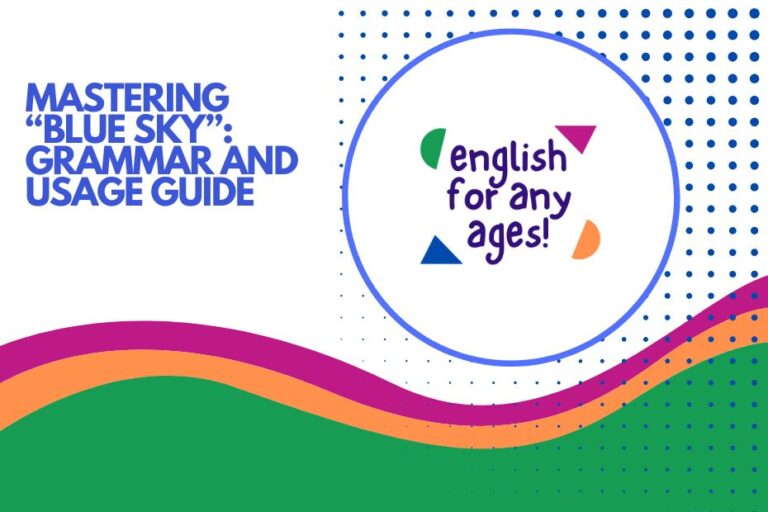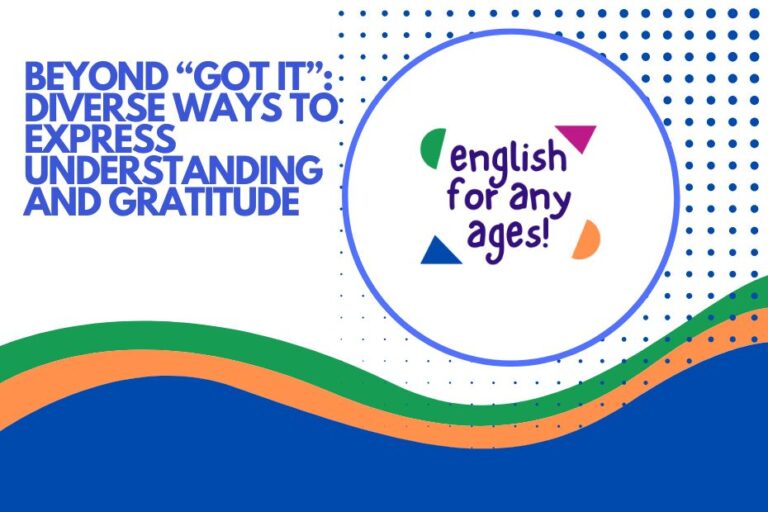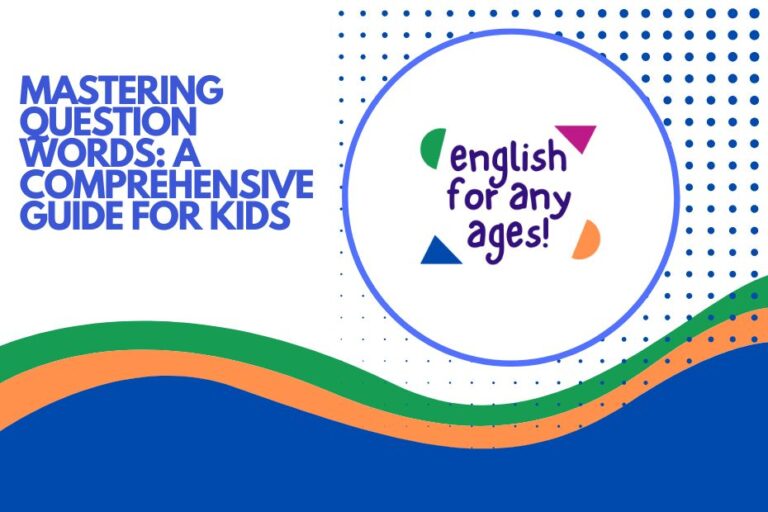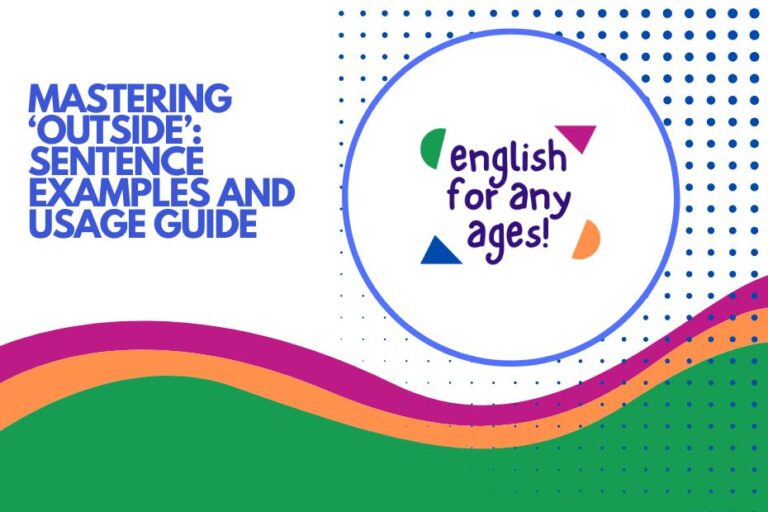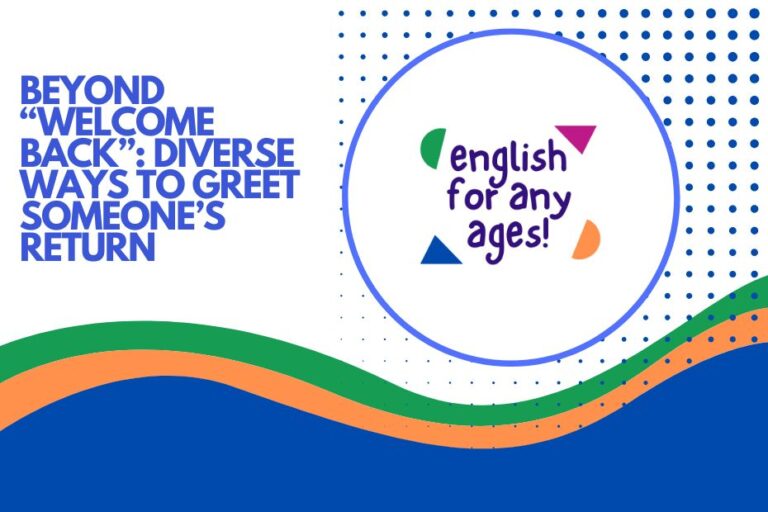Other Ways to Say “I Wish You the Best of Luck”: A Comprehensive Guide
Expressing good luck to someone is a common and important social gesture. While “I wish you the best of luck” is a perfectly acceptable phrase, relying on it exclusively can make your language sound repetitive.
This article explores a wide range of alternative expressions, providing you with the vocabulary and understanding to convey your well wishes in a more nuanced and engaging way. Whether you’re writing a formal letter, giving a speech, or simply chatting with a friend, mastering these alternatives will enrich your communication skills and allow you to express genuine support with greater impact.
This guide is designed for English language learners of all levels, from beginners looking to expand their basic vocabulary to advanced speakers aiming to refine their expressive abilities.
Table of Contents
- Introduction
- Definition: Wishing Someone Luck
- Structural Breakdown of Luck-Wishing Phrases
- Types and Categories of Expressions
- Examples of Alternative Expressions
- Usage Rules and Considerations
- Common Mistakes to Avoid
- Practice Exercises
- Advanced Topics: Nuances and Subtleties
- Frequently Asked Questions (FAQ)
- Conclusion
Definition: Wishing Someone Luck
Wishing someone luck is the act of expressing hope and positive expectations for their success in a future endeavor or situation. It involves conveying your belief in their ability to achieve a favorable outcome and offering your support and encouragement.
This expression serves both a practical and social function. Practically, it can boost the recipient’s confidence and motivation.
Socially, it strengthens bonds and demonstrates empathy and goodwill.
The act of wishing luck can be classified as a type of speech act, specifically an expressive speech act. This means its primary purpose is to convey the speaker’s psychological state, in this case, their positive feelings and hopes for the listener. The function of wishing luck is multifaceted, encompassing encouragement, support, and the affirmation of the recipient’s potential. Contexts where wishing luck is appropriate are diverse, ranging from formal settings like graduation ceremonies and business presentations to informal situations like before a friend’s sports game or a family member’s audition.
Structural Breakdown of Luck-Wishing Phrases
Luck-wishing phrases can be broken down into several key structural elements. Understanding these elements allows you to create your own unique and impactful expressions.
- The Subject: Typically, the subject is implied (“I”) or explicitly stated (e.g., “We,” “Everyone”).
- The Verb: Common verbs include “wish,” “hope,” “believe,” “know,” and “trust.” These verbs express the speaker’s sentiment.
- The Object: This refers to the person or people receiving the well wishes (e.g., “you,” “him,” “her,” “them”).
- The Expression of Luck: This is the core of the phrase and conveys the desired outcome. It can range from simple phrases like “good luck” to more elaborate expressions like “all the best in your endeavors.”
- Optional Modifiers: These add detail and personalize the message. Examples include adverbs like “sincerely,” “truly,” and “absolutely,” or adjectives that describe the desired outcome, such as “great success” or “smooth sailing.”
For example, in the sentence “I wish you the best of luck,” the subject is “I” (implied), the verb is “wish,” the object is “you,” and the expression of luck is “the best of luck.” Modifying this slightly, we can say “I sincerely wish you great success,” where “sincerely” is an adverb modifying the verb and “great” is an adjective modifying “success.” This breakdown highlights how varying these elements can create diverse expressions.
Types and Categories of Expressions
Expressions for wishing someone luck can be categorized based on formality, purpose, and context. Understanding these categories helps you choose the most appropriate phrase for any given situation.
Formal Expressions
Formal expressions are suitable for professional settings, academic situations, or when addressing someone with respect. These phrases often use more sophisticated vocabulary and avoid colloquialisms.
Examples of formal expressions include:
- “I wish you every success in your future endeavors.”
- “I extend my best wishes for your continued progress.”
- “May your efforts be richly rewarded.”
- “I have every confidence in your ability to succeed.”
- “I am certain that you will achieve your goals.”
Informal Expressions
Informal expressions are appropriate for friends, family, and close colleagues. They often use more casual language and may include idioms or slang.
Examples of informal expressions include:
- “Fingers crossed for you!”
- “Knock ’em dead!”
- “Break a leg!”
- “Best of luck, you’ve got this!”
- “I’m rooting for you!”
Encouraging Expressions
Encouraging expressions focus on boosting the recipient’s confidence and reminding them of their strengths. These phrases often emphasize their potential and capabilities.
Examples of encouraging expressions include:
- “I believe in you!”
- “You’ve got what it takes!”
- “I know you can do it!”
- “Don’t give up, you’re almost there!”
- “Keep pushing, you’re doing great!”
Event-Specific Expressions
Event-specific expressions are tailored to the particular situation the person is facing. These phrases demonstrate that you have considered the specific challenges and opportunities involved.
Examples of event-specific expressions include:
- “Good luck with your presentation!”
- “Hope you ace your exam!”
- “Wishing you a successful interview!”
- “Have a fantastic performance!”
- “May your new business venture thrive!”
Idiomatic Expressions
Idiomatic expressions are colorful and often humorous ways to wish someone luck. These phrases add personality and can be particularly effective in informal settings.
Examples of idiomatic expressions include:
- “Go get ’em!”
- “Blow them away!”
- “Hit it out of the park!”
- “Smooth sailing!”
- “May the force be with you!” (Humorous)
Examples of Alternative Expressions
This section provides a comprehensive list of alternative expressions for wishing someone luck, categorized by context. Each category includes a table with numerous examples to help you expand your vocabulary and choose the most appropriate phrase.
General Wishes of Luck
These expressions are suitable for a variety of situations where you want to convey general good wishes. They are versatile and can be used in both formal and informal settings, depending on the specific phrasing.
The following table provides a range of general well-wishing expressions:
| Expression | Formality | Example Sentence |
|---|---|---|
| All the best! | Informal/Formal | “You’re starting your new job tomorrow? All the best!” |
| Best of luck! | Informal/Formal | “Best of luck with your presentation later today.” |
| Good luck! | Informal/Formal | “Good luck on your driving test!” |
| I wish you well. | Formal | “As you embark on this journey, I wish you well.” |
| Wishing you success! | Formal/Informal | “Wishing you success in all your future endeavors!” |
| Hope everything goes well. | Informal | “Hope everything goes well with your surgery.” |
| I hope it all works out. | Informal | “I hope it all works out for you in the end.” |
| Fingers crossed! | Informal | “I’ve applied for the scholarship, fingers crossed!” |
| Best wishes! | Formal/Informal | “Best wishes for a speedy recovery.” |
| I’m rooting for you! | Informal | “You’re running the marathon? I’m rooting for you!” |
| I’m behind you all the way. | Informal | “Whatever you decide, I’m behind you all the way.” |
| May fortune smile upon you. | Formal | “May fortune smile upon you in your quest.” |
| May things go your way. | Informal | “I hope things go your way this time.” |
| Have a good one! | Informal | “I’m off to the airport, have a good one!” |
| All the best to you. | Formal/Informal | “All the best to you and your family.” |
| I’m keeping my fingers crossed for you. | Informal | “I’m keeping my fingers crossed for your acceptance into the university.” |
| Sending good vibes your way. | Informal | “Sending good vibes your way for your big game!” |
| Here’s hoping everything goes according to plan. | Informal/Formal | “Here’s hoping everything goes according to plan with the project launch.” |
| I have high hopes for you. | Informal/Formal | “I have high hopes for you and your future career.” |
| Wishing you all the very best. | Formal/Informal | “Wishing you all the very best in your new role.” |
| I wish you a favorable outcome. | Formal | “I wish you a favorable outcome in the negotiations.” |
| May success be with you. | Formal | “May success be with you as you pursue your dreams.” |
| Everything will be alright. | Informal | “Don’t worry, everything will be alright.” |
| I hope you do well. | Informal/Formal | “I hope you do well in your studies.” |
For Exam Success
These expressions are specifically tailored for someone taking an exam or test. They focus on encouraging them to perform well and achieve a good grade.
The table below offers phrases to wish someone good luck on their exams:
| Expression | Formality | Example Sentence |
|---|---|---|
| Knock ’em dead! | Informal | “Final exams are tomorrow? Knock ’em dead!” |
| Ace that test! | Informal | “Ace that test, I know you can do it!” |
| Do your best! | Informal/Formal | “Just do your best, that’s all that matters.” |
| I hope you pass with flying colors! | Informal | “I hope you pass with flying colors on the bar exam!” |
| Wishing you the best on your exam. | Formal/Informal | “Wishing you the best on your exam, I know you’ve studied hard.” |
| Good luck with your studies! | Formal/Informal | “Good luck with your studies, remember to take breaks.” |
| I hope you do great! | Informal | “I hope you do great on your history exam!” |
| You’ve got this! | Informal | “Don’t worry about the exam, you’ve got this!” |
| Give it your all! | Informal | “Give it your all on the final exam!” |
| I’m sure you’ll do well. | Informal/Formal | “I’m sure you’ll do well, you’re a smart student.” |
| May your answers be correct. | Informal | “May your answers be correct and your mind be sharp!” |
| I hope you remember everything you studied. | Informal | “I hope you remember everything you studied for the test.” |
| Think positive and you’ll succeed. | Informal | “Think positive and you’ll succeed on the exam.” |
| Trust in your knowledge. | Formal/Informal | “Trust in your knowledge and answer confidently.” |
| May the odds be ever in your favor. (Humorous) | Informal | “May the odds be ever in your favor during the exam!” |
| Stay focused and you’ll nail it. | Informal | “Stay focused and you’ll nail it on the test.” |
| I know you’re prepared, so relax and do your best. | Informal | “I know you’re prepared, so relax and do your best on the exam.” |
| Remember to read the questions carefully! | Informal | “Remember to read the questions carefully during the test!” |
| Keep a clear head. | Informal | “Keep a clear head during the exam and you’ll be fine.” |
| Answer with confidence. | Informal/Formal | “Answer with confidence, you know the material.” |
| Don’t stress too much! | Informal | “Don’t stress too much about the test!” |
| I believe in your abilities. | Informal/Formal | “I believe in your abilities to ace this exam.” |
| Good luck and stay calm. | Informal | “Good luck and stay calm during the test.” |
| You’ve studied hard, now show them what you know. | Informal | “You’ve studied hard, now show them what you know on the exam.” |
For Job Interviews
These expressions are appropriate when someone is going for a job interview. They focus on wishing them success in presenting themselves well and securing the position.
The following table lists expressions to wish someone good luck on a job interview:
| Expression | Formality | Example Sentence |
|---|---|---|
| Go get ’em! | Informal | “You have an interview today? Go get ’em!” |
| Knock their socks off! | Informal | “Knock their socks off in that interview!” |
| I hope you impress them. | Informal | “I hope you impress them with your experience.” |
| Wishing you a successful interview! | Formal/Informal | “Wishing you a successful interview, I’m sure you’ll do great.” |
| Good luck landing the job! | Informal | “Good luck landing the job, it sounds perfect for you!” |
| I hope you get the job! | Informal | “I hope you get the job, you deserve it!” |
| Show them what you’re made of! | Informal | “Show them what you’re made of in that interview!” |
| I’m sure you’ll shine! | Informal | “I’m sure you’ll shine in the interview!” |
| Be confident and be yourself! | Informal | “Be confident and be yourself in the interview!” |
| May you make a great impression. | Formal | “May you make a great impression on the hiring manager.” |
| I hope you answer all their questions well. | Informal | “I hope you answer all their questions well in the interview.” |
| Remember to highlight your strengths. | Informal | “Remember to highlight your strengths during the interview.” |
| Stay calm and focused. | Informal | “Stay calm and focused during the interview.” |
| I hope they see your potential. | Informal | “I hope they see your potential and hire you.” |
| Wear a smile and be positive. | Informal | “Wear a smile and be positive during the interview.” |
| I have a good feeling about this for you. | Informal | “I have a good feeling about this interview for you.” |
| Good luck and remember to breathe! | Informal | “Good luck and remember to breathe during the interview!” |
| I know you’ll do great, just be yourself. | Informal | “I know you’ll do great, just be yourself in the interview.” |
| Show them your passion! | Informal | “Show them your passion for the job!” |
| Make sure to ask good questions. | Informal | “Make sure to ask good questions at the end of the interview.” |
| Good luck and sell yourself well. | Informal | “Good luck and sell yourself well during the interview.” |
| I’m confident you’ll impress them with your skills. | Informal | “I’m confident you’ll impress them with your skills and experience.” |
| I hope they offer you the position! | Informal | “I hope they offer you the position after the interview!” |
| Good luck and remember to follow up. | Informal | “Good luck and remember to follow up after the interview.” |
For Performances
These expressions are suited for wishing someone luck before a performance, such as a play, concert, or presentation. They often reference the specific nature of the performance.
The following table includes phrases for wishing luck before a performance:
| Expression | Formality | Example Sentence |
|---|---|---|
| Break a leg! | Informal | “You’re on stage tonight? Break a leg!” |
| Give it your best shot! | Informal | “Give it your best shot on stage tonight!” |
| I hope you shine on stage. | Informal | “I hope you shine on stage during your performance.” |
| Have a fantastic performance! | Formal/Informal | “Have a fantastic performance, I’m excited to see it.” |
| Wow the audience! | Informal | “Wow the audience with your talent!” |
| I hope you receive a standing ovation! | Informal | “I hope you receive a standing ovation for your performance!” |
| Give them a show they’ll never forget! | Informal | “Give them a show they’ll never forget tonight!” |
| I’m sure you’ll be amazing! | Informal | “I’m sure you’ll be amazing on stage tonight!” |
| Leave it all on the stage! | Informal | “Leave it all on the stage during your performance!” |
| May your voice be strong and clear. | Informal | “May your voice be strong and clear during your song.” |
| I hope you connect with the audience. | Informal | “I hope you connect with the audience during your play.” |
| Remember to breathe and enjoy yourself. | Informal | “Remember to breathe and enjoy yourself on stage.” |
| Show them your passion! | Informal | “Show them your passion for the art!” |
| May your performance be flawless. | Formal | “May your performance be flawless and captivating.” |
| Give it your heart and soul. | Informal | “Give it your heart and soul during your dance.” |
| I’m excited to see you perform! | Informal | “I’m excited to see you perform, good luck!” |
| Have a great show! | Informal | “Have a great show tonight!” |
| I know you’ll be fantastic. | Informal | “I know you’ll be fantastic on stage.” |
| May you captivate the audience. | Formal | “May you captivate the audience with your talent.” |
| Remember all your lines! | Informal | “Remember all your lines on stage!” |
| Good luck and have fun! | Informal | “Good luck and have fun during your performance tonight.” |
| I hope you get rave reviews. | Informal | “I hope you get rave reviews for your performance.” |
| May your talent shine brightly. | Formal | “May your talent shine brightly during the show.” |
| I’m proud of you, now go out there and shine. | Informal | “I’m proud of you, now go out there and shine on stage.” |
For New Ventures
These expressions are appropriate when someone is starting a new business, project, or endeavor. They focus on wishing them success in their new undertaking.
The table below provides expressions for wishing luck in new ventures:
| Expression | Formality | Example Sentence |
|---|---|---|
| I hope your business thrives! | Informal | “You’re opening a new store? I hope your business thrives!” |
| May your new venture be successful. | Formal | “May your new venture be successful and rewarding.” |
| Wishing you every success in your new project. | Formal | “Wishing you every success in your new project.” |
| Good luck with your new endeavor! | Formal/Informal | “Good luck with your new endeavor, I’m excited for you.” |
| I hope it all goes according to plan. | Informal | “I hope it all goes according to plan with your startup.” |
| May your hard work pay off. | Formal | “May your hard work pay off in your new venture.” |
| I’m excited to see what you accomplish. | Informal | “I’m excited to see what you accomplish with your new business.” |
| May your dreams come true. | Informal | “May your dreams come true with this new opportunity.” |
| I hope you achieve all your goals. | Informal | “I hope you achieve all your goals with your new company.” |
| May your path be smooth. | Formal | “May your path be smooth and your challenges few.” |
| I hope you find success and happiness. | Informal | “I hope you find success and happiness in your new career.” |
| Remember to stay positive and persistent. | Informal | “Remember to stay positive and persistent during the challenges.” |
| I believe in your vision. | Informal | “I believe in your vision and your ability to succeed.” |
| May your efforts be richly rewarded. | Formal | “May your efforts be richly rewarded in this new endeavor.” |
| I’m sure you’ll make a difference. | Informal | “I’m sure you’ll make a difference with your new project.” |
| Good luck and follow your passion. | Informal | “Good luck and follow your passion in this venture.” |
| I’m here to support you every step of the way. | Informal | “I’m here to support you every step of the way.” |
| Wishing you all the best in this new chapter. | Formal/Informal | “Wishing you all the best in this new chapter of your life.” |
| May you overcome all obstacles. | Formal | “May you overcome all obstacles in your new business.” |
| Stay focused and never give up. | Informal | “Stay focused and never give up on your dreams.” |
| I hope your business becomes a success. | Informal | “I hope your business becomes a success and brings you happiness.” |
| May your journey be filled with joy and prosperity. | Formal | “May your journey be filled with joy and prosperity in your new venture.” |
| I’m excited to see your dreams become reality. | Informal | “I’m excited to see your dreams become reality with this new project.” |
| Good luck and enjoy the ride. | Informal | “Good luck and enjoy the ride with your new business venture.” |
Usage Rules and Considerations
When choosing an alternative expression for “I wish you the best of luck,” consider the following usage rules and contextual factors:
- Formality: Match the formality of your expression to the context and your relationship with the recipient. Use formal expressions in professional settings and informal expressions with friends and family.
- Specificity: Tailor your expression to the specific situation. Event-specific expressions demonstrate that you have considered the challenges and opportunities involved.
- Sincerity: Ensure that your expression is genuine and heartfelt. Avoid using idioms or phrases that you don’t fully understand, as this can come across as insincere.
- Cultural Sensitivity: Be aware of cultural differences in expressions of luck. Some cultures may have specific customs or phrases that are considered more appropriate.
- Audience: Consider your audience when choosing an expression. What might be appropriate for a peer may not be suitable for a superior or someone you don’t know well.
It’s also important to be mindful of the potential for misinterpretation. Some idioms, like “break a leg,” can sound negative if taken literally.
Ensure that the recipient understands the intended meaning and context of your expression.
Common Mistakes to Avoid
Several common mistakes can occur when using alternative expressions for wishing someone luck. Being aware of these errors can help you avoid awkward or inappropriate situations.
| Incorrect | Correct | Explanation |
|---|---|---|
| “Good luck for you!” | “Good luck to you!” | The preposition “to” is required when wishing someone luck directly. |
| “I wish you a luck!” | “I wish you luck!” | “Luck” is an uncountable noun and does not take the indefinite article “a.” |
| “Break a leg!” (in a formal setting) | “I wish you the best of luck with your performance.” | “Break a leg” is an informal idiom and is not appropriate for formal situations. |
| “I hope you will good.” | “I hope you do well.” | “Good” is an adjective; “well” is an adverb. In this context, the adverb “well” is needed to modify the verb “do.” |
| “Luck you!” | “Good luck!” or “Lucky you!” | “Luck you!” is not a standard English expression. Use “Good luck!” to wish someone well or “Lucky you!” to express envy for their fortunate situation. |
| “Have a luck day!” | “Have a lucky day!” | “Lucky” is the adjective that describes the day, not the noun “luck.” |
| “I’m wishing to you luck.” | “I’m wishing you luck.” | The preposition “to” is unnecessary when “wishing” is followed directly by the person receiving the wish. |
| “All the bests!” | “All the best!” | “Best” in this context is a superlative adjective and does not need to be pluralized. |
Practice Exercises
Test your understanding of alternative expressions for wishing someone luck with these practice exercises. Choose the most appropriate expression for each situation.
-
Question: Your friend is about to start a new business. What would you say?
- Good luck for you!
- I hope your business thrives!
- Break a leg!
Answer: b) I hope your business thrives!
-
Question: Your colleague is giving a presentation to the board of directors. What would be the most formal way to wish them luck?
- Knock ’em dead!
- I wish you every success in your presentation.
- Go get ’em!
Answer: b) I wish you every success in your presentation.
-
Question: Your sibling is taking their driving test. What would you say?
- I hope you do well!
- I wish you a luck!
- All the bests!
Answer:

